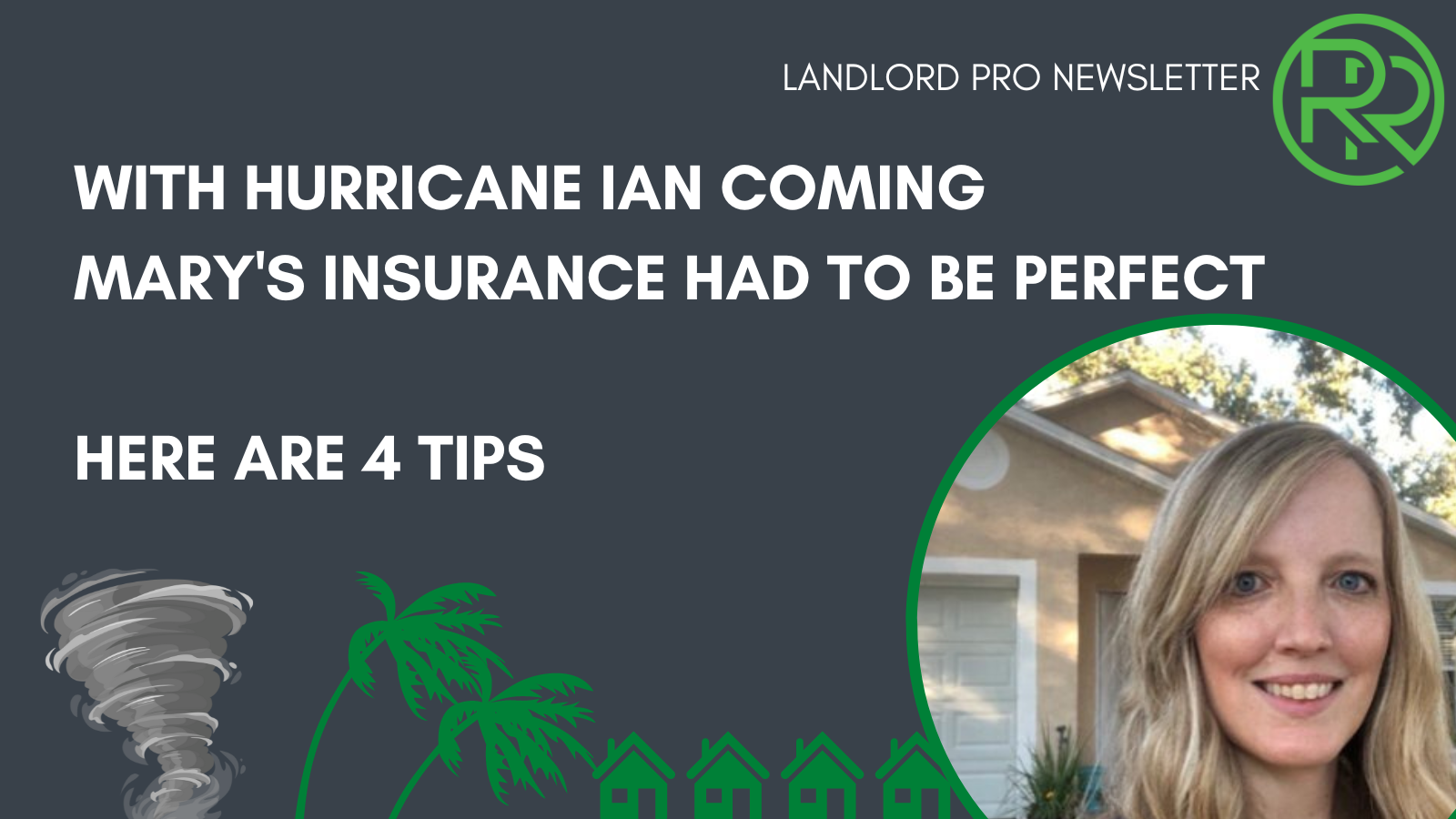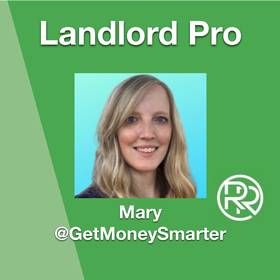Good morning,
One of the most boring topics in real estate happens to also be one of the most important topics: insurance coverage. Before you close this to go check Instagram, hear me out.
Two weeks ago, I woke up in the middle of the night, heart-pounding, in a cold sweat, wondering if I had enough insurance coverage on my properties. What brought this on? It was Tuesday, September 27th and hurricane Ian was heading straight for Tampa, Florida. Straight towards my home, my family and my 7 rental properties. My family and I could evacuate safely, we had plans for that, so I was less concerned about our well-being.
The previous day, I had reached out to each of my tenants individually, checking their plans & safety precautions. That helped with the concern I had for my tenants’ safety. It was in the middle of the night that I suddenly felt insecure about the damage that might occur at the properties themselves.
As I made a cup of strong, 5am coffee, I pulled out each of my property insurance documents and read through the coverage. Yes, I had looked over these when I bought each of the properties, but amidst the inspections, closing documents, and last-minute negotiations, had I paid that much attention to what the insurance policy said? Honestly, no.
Fortunately, I had an excellent insurance agent. Reading over the documents, I felt reassured that we could handle the costs of recovery if it came to that. We had low deductibles and good property and liability coverage.
Hurricane Ian ended up turning south at the last minute and we avoided most of the wind and damaging storm surge. There are many other people, unfortunately, who have to deal with loss of property and even worse loss of life. You never know what may occur and insurance is there to provide peace of mind in a difficult situation.
So, I’m here to demystify some of the insurance jargon and highlight the important information about insurance. And maybe I can help you avoid future sleepless nights and needless worry.

4 questions about your property insurance:
1.) Do you have the right type of insurance?
Insurance on a rental property (DP3) is going to be different to the insurance you have on your personal residence (HO3). A “dwelling” policy will cover physical property damage, loss of rental income, and have much higher liability coverage, in case of accidental injuries on your property. It does not cover the contents of a property or the land.
2.) Actual cash value vs. replacement cost – which should you choose?
ACV allows you to insure your property at a lower insured value per square foot, which means your insurance premiums will be lower. However, the policy factors in depreciation, so if your property sustains major damage, there probably won’t be enough money to rebuild. It’s better than having no insurance at all, and is sufficient for claims on small losses. It also can work for an investor buying with cash.
Replacement cost policy you would receive the actual cash value for catastrophic damage. An adjuster determines the initial actual cash value, then once you rebuild or repair the damage, you can submit receipts for a further payout. Most lenders require this type of insurance policy and it requires the property to be in good condition (pass a 4-point inspection).
A replacement cost policy minimizes financial risk and is the policy most investors choose. The ACV policy works for some investors who have a short-term timeline of owning the property or who is doing regular renovations. I personally prefer a replacement cost policy if anything for peace of mind.
3.) How many coverage types are there?
There are 6 coverage types on home insurance. Your insurance agent should walk your through all 6 so you know what is being covered and what is not necessary for your rental.
I will highlight 3 of them to pay attention to:
Coverage “A” is the main dwelling on your property. Pay attention to the deductible and what “perils” are covered with the insurance (For example most policies do not cover loss from flood or earthquake damage).
Coverage “B” (known as “Other structures and business personal property”) is important to add if you need to cover other structures on the property such as garages, sheds etc,. Now, I’ve had insurance agents add this coverage when it was not necessary, increasing the premium. So make sure you look at all coverage on your policy and make sure it is all necessary.
Coverage “E” and “F” has to do with personal liability and medical payments to guests. Pay careful attention to these two. Oftentimes, an insurance agent will lower this coverage so they can offer you the lowest price and therefore win you as a customer. Just make sure the low price includes good coverage for these two sections.
4.) What deductible & Liability limit should I choose?
The rule of thumb with the deductible is: the higher the deductible, the lower the premium. Your deductible amount is dependent on your risk tolerance. If you think “better to be safe than sorry”, then pay a little more for the low deductible. You are assuming at some point there will be an expensive claim in your future, you might sleep better at night with higher coverage. The opposite is true if you have a higher risk tolerance, have adequate reserves on the side to cover loss, and want to pay a lower monthly premium.
Liability coverage is perhaps the most important and overlooked part of your insurance coverage. Imagine how expensive a lawsuit can be. You could be liable for medical payments, lawyers’ costs, settlement costs, etc. If a friend of your tenant is hanging out, trips over a tree stump and breaks their arm, you may be liable. The risk is multiplied by the number of doors you have.
The liability protection you choose is up to you – there is no prescribed amount. I go back to whatever helps you sleep well at night. It also may depend on the rental property you own. The average on a residential property is at least $100,000 worth of coverage, whereas a commercial averages at $1,000,000.
Having a great team is incredibly important to your real estate business. A rock star agent means you can ask questions, get a quick response, and know that you will have the right coverage for all your properties.
More From Mary

Mary | Rentals to Freedom (@GetMoneySmarter) / Twitter — twitter.com
I teach how to invest in real estate & achieve financial freedom | Tips on spending less & making more | Get my free guide to buying your first rental👇
